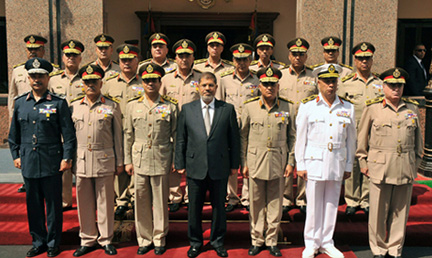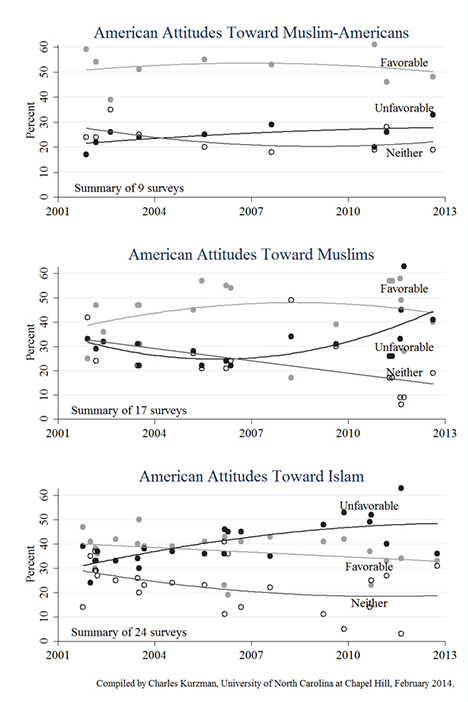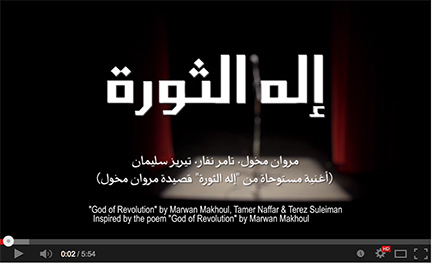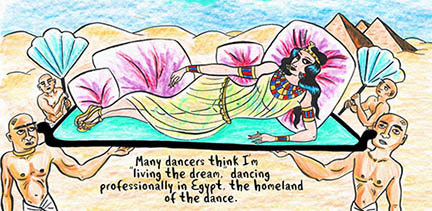
Egypt’s President Mohamed Morsi (C) pose for photos between Defence Minister Abdel Fattah al-Sisi (centre L) and General Sedky Sobhi (centre, R), chief of staff to Egypt’s Supreme Council of the Armed Forces (SCAF), and other military generals and members of SCAF (Photo: Reuters)
Playing With Fire: The Showdown in Egypt between the General and the Islamist President
by Ann M. Lesch, Foreign Policy Research Institute, March 2014
General Abdel Fattah El-Sisi, May 2013: “No one should think that the solution is with the army…. This army is a fire. Do not play against it and do not play with it.â€[1]
El-Sisi: “The Army’s decision to intervene [on July 3] was dictated by national interest, national security necessities, and fears of a civil war breaking out… if the situation continued… We believed that if we reached civil war, then the army would not be able to stop it.â€[2]
Last July 9, I commented in an FPRI E-Note on the vast public protests that had just swept Egypt, which culminated in General Abdel Fattah el-Sisi’s arrest of President Mohamed Morsi on July 3.[3] A wide range of Egyptians demonstrated to restore the country to the path of political and socio-economic democratization longed for in January 2011 but delayed by seventeen months of military rule and then side-tracked by a year of the elected president’s increasingly divisive and authoritarian behavior. Even as the minister of defense seized power in July, he claimed he was acting at the request of the public and was following the road-map proposed by Tamarod (rebel!), the informal group of protest organizers who wanted the head of the Supreme Constitutional Court to be the (symbolic) interim president with a technocratic cabinet, pending elections for a new president.
In this essay, I focus on the indications before July 3 that El-Sisi was increasingly angry at Morsi’s policies. His perspective shifted from trying to manage a difficult situation, to threatening a putsch, to encouraging a popular uprising. It is possible to partly reconstruct those shifts because of the interviews and statements that El Sisi[4] and senior security officers made before and after July.
It is clear that the police never reconciled to serving under a president whose base of power lay in the Muslim Brotherhood.[5] Police never differentiated between the Brotherhood, which eschewed violence, and the jihadist groups operating in Sinai. Having been humiliated (from their perspective) during the January Revolution – and especially on January 28, when they lost control over the street, the police stations, and the prisons – they (inaccurately) blamed the revolution on the Brotherhood and vowed revenge. Indeed, a senior officer stated that lower and mid-rank officers agreed to perform routine duties only when senior officers assured them that they would find the right moment to depose the president. They refused to guard the offices of the Brotherhood’s political party or, notably, the Presidential Palace, when it was surrounded on December 5 by protesters against Morsi’s November 22 Constitutional Decree…
for the rest of this article, click here.







